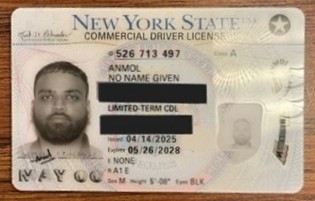The Tenth Amendment and the Treaty power of Article Six
The Tenth Amendment is the only chain strong enough in the state's arsenal of legal powers (other than the Second Amendment) to bind the federal government to its delegated powers under the Constitution, or to remove themselves from a tyrannical federal government by the right of secession.
The following definitions are from Noah Webster's Dictionary of 1828: "foundation: The basis or ground-work, of any thing; that on which any thing stands and by which it is supported; chains: That which binds; a real chain; that which restrains, confines, or fetters; a bond. A series of things linked together; a series of things connected or following in succession; as a chain of causes, or ideas, or events; constitution: The established form of government in a state, kingdom or country; a system of fundamental rules, principles and ordinances for the government of a state or nation." In free states, the constitution is paramount to the statutes or laws enacted by the legislature, limiting and controlling its power; and in the United States, the legislature is created, and its powers designated by the Constitution.
There are powers which the Federal and State governments exercise known as "concurrent" powers; and when in the use of such powers the Federal Government acts by legislation, though the State has likewise acted, the Federal power must prevail, for constitutional laws of Congress are the supreme law of the land, and the state law must yield; but not so if the law of Congress embraces a subject which is reserved to the States or forbidden to the Federal Government, for then the Law of Congress is not in pursuance of the Constitution that declares, "the powers not delegated to the United States by the Constitution, nor prohibited by it to the States are reserved to the States respectively, or to the people." (10th Amendment).
Article Six, Section Two, is as follows: "This Constitution, and the laws of the United States which shall be made in pursuance thereof, and all Treaties made, or which shall be made, under the authority of the United States, shall be the supreme law of the land; and the judges in every State shall be bound thereby, anything in the Constitution or laws of any State to the contrary notwithstanding." It will be noticed in this section that not only are Treaties made "under the authority of the United States," the supreme law of the land, but the same section also declares, "This Constitution, and the laws of the United States which shall be made in pursuance thereof," are also the supreme law of the land; that is, the Constitution, which embraces among many powers the treaty-making power, is the supreme law of the land.
In this clause it is also noted that "this Constitution," is placed first, "the laws of the United States which shall be made in pursuance thereof" second, "and all Treaties made" is placed after the other two. This clause does not single out the treaty-making power alone as supreme, but it designates two others as supreme and carefully enumerates them with the treaty-making power, and if the location of each in the sentence is to be reckoned according to its importance, the first two, that is, ''this Constitution, and the laws made in pursuance thereof," would be prior to Treaties.
The Constitution includes the treaty-making power as well as many others to be the supreme law of the land, as cannot be denied under this clause. Is a Treaty which violates the Constitution supreme? Is there anything in the clause which justifies holding a Treaty supreme though clearly invading forbidden ground and denying the same to a law of Congress that is clearly unconstitutional? Can supremacy be predicated of any instrument that contains the badges of its own subordination? Can the Constitution be supreme in every article, in every section, in its whole?
The Government of the United States is established by the Constitution. Since this is true, we must examine the Constitution in its whole scope when examining a Treaty to see whether such Treaty is in accordance with the Constitution: for as Judge Cooley says, "The Constitution itself never yields to Treaty or Enactment: it neither changes with time, nor does it in theory bend to the force of circumstances." (Constitutional Law, page 33).
The Tenth Amendment is not subordinate to the treaty-making power clause of Article Six when any treaty is not in Pursuance of it. The legal right of a state to nullify means to annul; to make void; to render invalid; to deprive of legal force or efficacy. Likewise State governments have a legal duty to nullify any act of Congress, an Executive order of the President or a Judicial decree not in pursuant to the federal Constitution. Nullification is an act of state sovereignty. Nullification is one of the many reserved powers of the several states and the people thereof. Therefore, the Tenth Amendment becomes that supreme law of the land as per the supremacy clause of Article Six. "On every question of construction, (let us) carry ourselves back to the time when the Constitution was adopted, recollect the spirit manifested in the debates, and instead of trying what meaning may be squeezed out of the text, or invented against it, conform to the probable one in which it was passed." (Thomas Jefferson, The Writings of Thomas Jefferson, Berg, 15:449).










Latest Commentary
Thursday 30th of October 2025
Thursday 30th of October 2025
Thursday 30th of October 2025
Thursday 30th of October 2025
Thursday 30th of October 2025
Thursday 30th of October 2025
Thursday 30th of October 2025
Thursday 30th of October 2025
Thursday 30th of October 2025